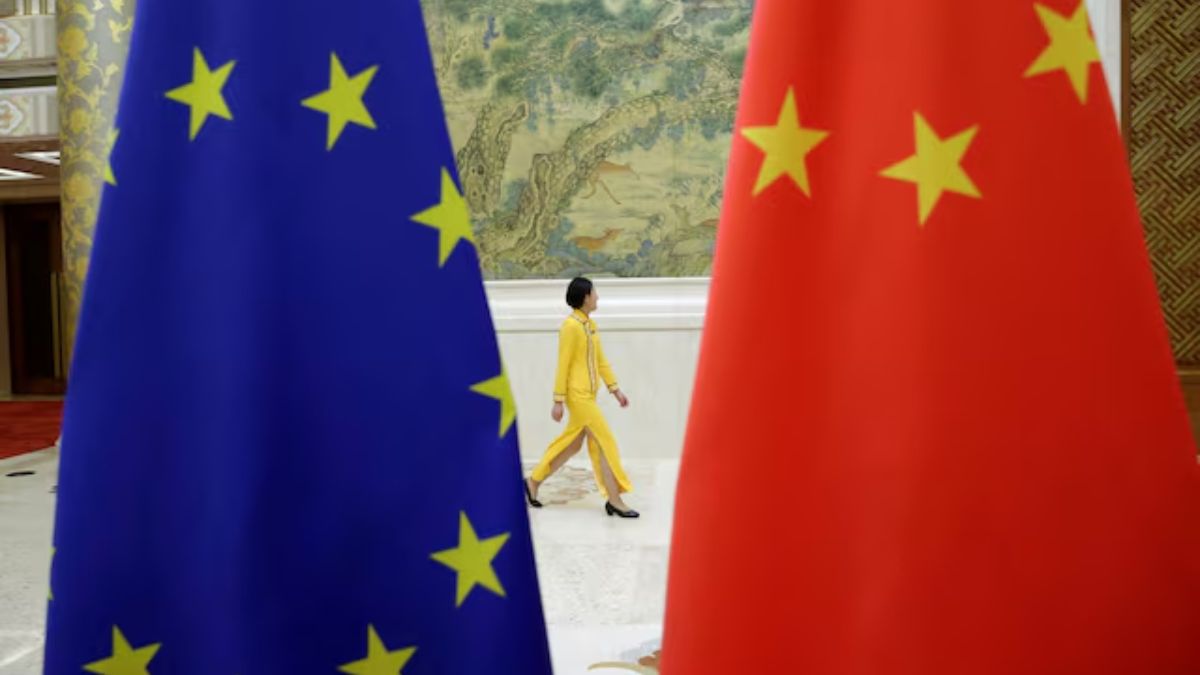The start of Donald Trump’s second term is right around the corner. He has promised four years of “America First” policies. That includes protectionism and tariffs– against adversaries like China and allies like Canada and the European Union.
In the face of potential trade tensions– or worse, trade wars– some unlikely partnerships might be forming.
One of these alliances could be between the EU and China.
Beijing and the bloc are already negotiating to find an alternative solution to replace the newly imposed import levies on China’s electric vehicles (EVs).
While there are conflicting reports on progress in the talks, with some suggesting an agreement is near and others indicating little change, both sides grapple with increasing tensions.
The EU has imposed tariffs on Chinese EVs, citing concerns over subsidies and market distortions, while China has retaliated with its own investigations into European exports, including dairy, pork, and luxury goods.
A shared concern between EU, China
Still, there is a strong incentive for EU and China to work together, even if that alliance is uneasy.
“Half of our export profile now is in Asia. If we can secure our trade with Europe, this makes up nearly 70 per cent of our exports,” South China Morning Post quoted He Weiwen, a senior fellow at the Beijing-based Centre for China and Globalisation think tank, as saying.
“So even if we face volatility from the US, we can be less affected. To show that we want to pursue a better trade relationship, we should also import more from Europe.”
Impact Shorts
More ShortsFor EU, the calculations are different. Their top priority appears to be appeasing the US.
Strategies under consideration include increasing imports of US liquefied natural gas and military equipment to appease the US administration.
European Central Bank President Christine Lagarde advocates for negotiation over retaliation to prevent a global GDP downturn.
But in case that does not work, the bloc will have to consider diversifying.
SCMP quoted a Beijing-based economist who has advised China’s State Council on foreign trade relations as saying that he “at least sees a possibility” of working with the EU, since both had friction with the US in Trump’s first term.
“It was exactly why the EU-China Comprehensive Agreement on Investment (CAI) was able to come to an initial agreement after seven years of negotiations,” the economist said.
It won’t be easy, though.
Not an easy path
While shared economic interests could lead to closer ties, underlying issues such as market access, intellectual property rights, EU’s concerns over Chinese “dumping”, and geopolitical tensions, especially surrounding China’s alleged support for Russia’s war efforts in Ukraine, may hinder a robust alliance.
Analysts, such as Joerg Wuttke, the president emeritus of the European Union Chamber of Commerce in China, believe that even if Trump’s second term presents more challenges for both China and the EU, it will not be sufficient to mend the deteriorating relationship between the two.
“That was the overall belief, but it didn’t happen under Trump’s first term, and it will not happen now, for many reasons,” Wuttke said.
In that context, if the China-EU negotiations over EV tariffs are successful, it is likely to serve as precedent to open up other avenues of cooperation.
Whether that happens, remains to be seen.
With inputs from agencies


)

)
)
)
)
)
)
)
)



